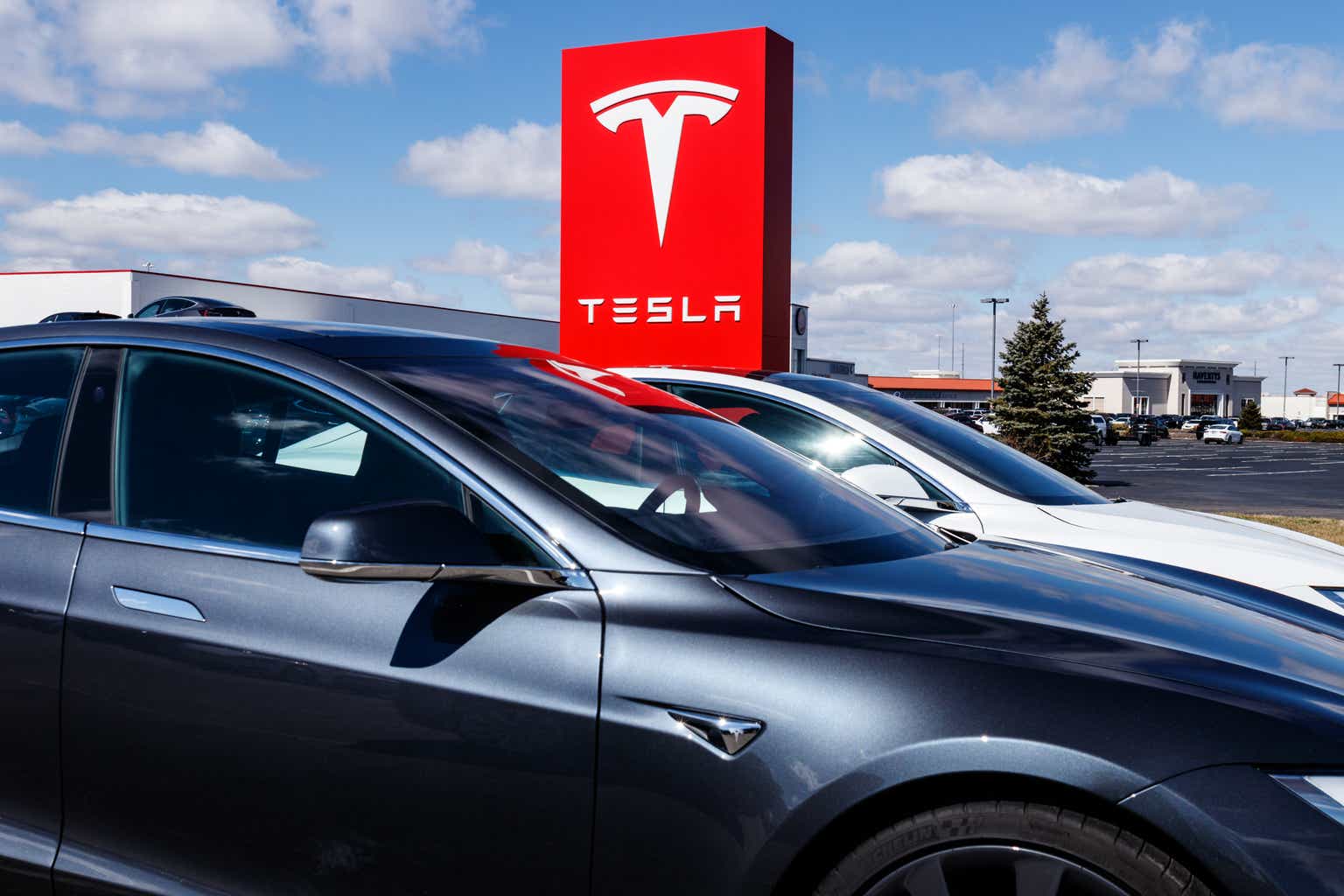Tesla Stock's Rocky Road: JPMorgan's Cuts & Future Outlook
Will Teslas stock price plummet, or can it weather the gathering storm? Recent analyses suggest a turbulent period ahead for the electric vehicle giant, painting a picture of potential declines and a reevaluation of market sentiment surrounding the company.
The automotive industry is watching closely as major financial institutions like J.P. Morgan, Goldman Sachs, and UBS, along with analysts like Ryan Brinkman, adjust their forecasts for Tesla's future performance. These revisions, driven by a confluence of factors, raise serious questions about the company's trajectory in the coming years. What's driving this wave of skepticism, and what does it mean for investors?
| Category | Details |
|---|---|
| Name | Tesla, Inc. |
| Industry | Electric Vehicle Manufacturing, Energy Generation and Storage |
| Founded | July 1, 2003 |
| Founders | Martin Eberhard, Marc Tarpenning, Elon Musk (as investor, later CEO) |
| CEO | Elon Musk |
| Headquarters | Austin, Texas, USA |
| Products | Electric Vehicles (Cars, Trucks), Energy Storage Systems (Powerwall, Powerpack), Solar Panels |
| Market Capitalization (approx.) | Varies, but generally in the hundreds of billions of USD |
| Key Competitors | Various EV manufacturers including but not limited to, BYD, Volkswagen, General Motors, Ford, Rivian |
| Website | Tesla.com |
The primary concern revolves around Tesla's delivery forecasts. J.P. Morgan, for one, has significantly reduced its estimates for the first quarter of 2025, mirroring similar actions by other major financial players. Analyst Ryan Brinkman, for example, anticipates a substantial drop in deliveries, potentially due to the evolving perception of the company in the face of the market image, the controversial political involvement of Elon Musk, and overall shifts in consumer sentiment.
The scale of these revisions is noteworthy. Some firms have cut delivery forecasts by as much as 20%, hinting at a challenging period ahead. Furthermore, the predicted impact extends beyond just delivery numbers; analysts are also adjusting their price targets for Tesla stock. Some projections suggest a potential drop to $120 per share, a figure that represents a significant decrease from current valuations. One analyst suggests this could be the worst result for deliveries Tesla has seen in three years, if the predictions hold true.
The ripple effect of these adjustments has the potential to reshape investor confidence. Tesla's stock, which once enjoyed a surge following favorable political developments, is now facing headwinds. Concerns surrounding Elon Musk's public stances, coupled with broader economic uncertainties, are contributing to a more cautious outlook.
One of the central drivers of this change in sentiment is a growing awareness of Elon Musk's political activities and its impact on the company's fundamentals. A Morgan Stanley survey revealed that a substantial portion of investors, 85%, believe that Musk's political involvement is having a negative impact on Tesla's business. This perception, combined with other factors, has led to a reevaluation of the company's future prospects.
Adding further complexity to the situation is a reported decrease in Tesla's share of the global Battery Electric Vehicle (BEV) market. Estimates suggest a drop from approximately 15.5% to 13.7% in 2024, a trend that raises questions about Tesla's competitive positioning and ability to maintain its market dominance. This decline may suggest increased competition from other manufacturers of electric vehicles, and challenges with the overall market dynamics.
The concerns are not limited to delivery forecasts and market share. J.P. Morgan has also pointed to a potential decrease in Tesla's 2024 earnings before interest and taxes (EBIT), estimated at $3.2 billion, representing 40% of the consensus estimate. Such a decline could signal challenges in profitability and overall financial health.Elon Musk's publicly stated views have also added to the mix of concerns. His support for the abolishment of the EV tax credit, for instance, raises questions about his attitude towards government support and the long-term implications for the industry.
The convergence of these factors paints a complex picture for Tesla. The company faces a delicate balancing act between maintaining its innovative edge, navigating shifting market dynamics, and addressing concerns about leadership and business practices. The question of the value of Tesla shares at the end of 2025 is now a major point of focus for investors. The looming regulatory changes add another layer of uncertainty, influencing investor strategies and contributing to the evolving narrative surrounding Tesla's future.
The challenges facing Tesla are a reflection of the evolving electric vehicle (EV) market as a whole. The rise of new competitors, changing consumer preferences, and increasing scrutiny of corporate governance are all reshaping the landscape. Tesla, as a market leader, is at the forefront of this transition, and its success will depend on its ability to adapt and respond to these forces.
The projections and evaluations by financial firms like J.P. Morgan and other industry experts must be interpreted in a wider context. The market is constantly evolving, with economic and industry conditions subject to rapid change. The current analysis points to a period of potential volatility for Tesla, and the need for potential investors to perform their own in-depth due diligence before making decisions.


